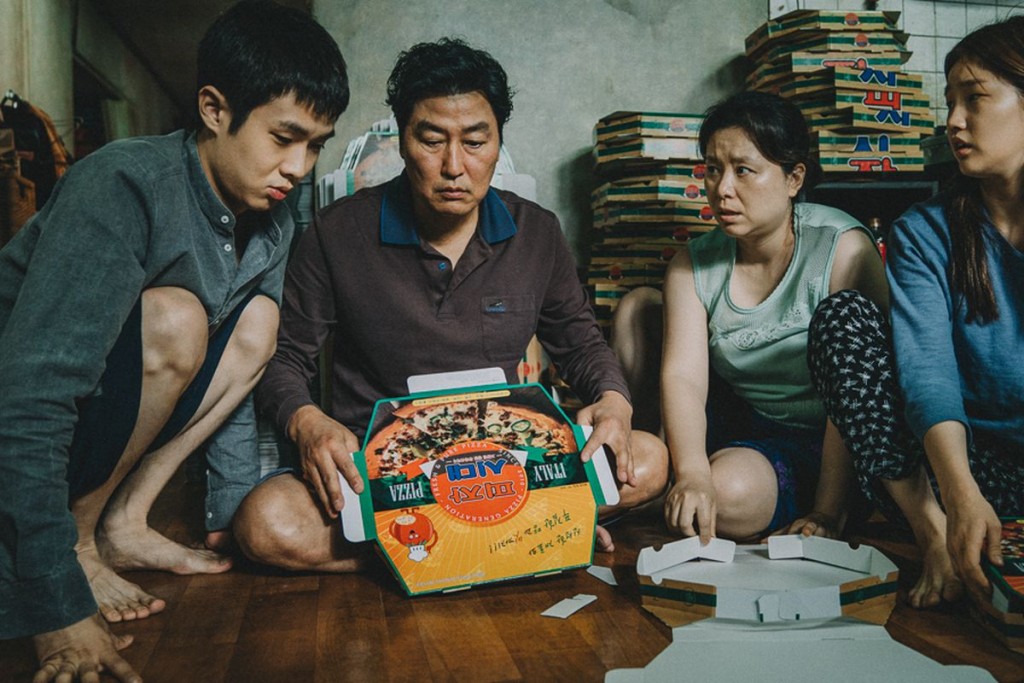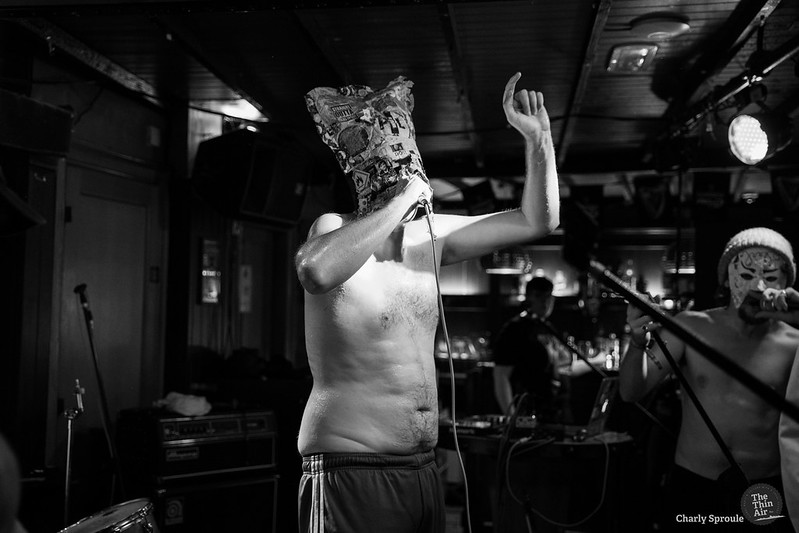In the dystopic locomotion of 2013’s Snowpiercer, Bong Joon Ho charted social hierarchy along the X axis. His new film, the Palme d’Or-netting Parasite, swaps horizontal for vertical, delivering a nasty update of the upstairs/downstairs formula for the South Korean service economy.
It starts, quite literally, underground. A teenage brother and sister sprinting through the Kim family’s basement flat in a panic, trailing phones along the ceiling to snag a stray thread of WiFi. Their ground-level window offers a view of shoes and trouser bottoms, the alley’s pissed and pissing. The smog of city fumigators seeps in, fogging the domicile like a nest.
Kim Ki-taek (Song Kang-ho) presides over a family that is poor, drifting, and a little embarrassed of their lot. But there’s a stroke of luck: Kim Ki-woo’s (Choi Woo-shik) socially mobile friend is going out of town, and asks Ki-woo to take his place as the tutor for the young teenage daughter of the Parks, a family flush with tech cash. All he needs is a forged university certificate and the right attitude. Fake it till you make it, right?
With the CEO father (Lee Sun-kyun) busy running a robotics company, domestic rhythms in the Parks’ chrome and glass compound is maintained by a loyal housekeeper, and the naive, cloistered mother, permanently fretting over her youngest son, the “artistic genius”. When the mother expresses desire for a tutor, Ki-woo spots an opening, and introduces his sister (Park So-dam), cosplaying as an elite American-educated artist, ready to dispense art-therapy platitudes and vague confirmations of the son’s promise. It’s the beginning of an infiltration, as, bit by bit, one family colonises the space of the other. A central, extended sequence in which they eliminate the existing staff, and coolly assume their places, clicks with the procedural satisfaction of a good heist.
A tense, silly, madcap thriller about consumer envy and stratification, Parasite pits one family against another. The designation of the title is two-sided: the poor family are gobbling at the teats of the rich, but the rich are dependent too, unable to get by without the contractors that keep their everyday gears turning. It’s a story about one family’s cynical cunning, and of another’s gullibility: the less grounded you are, the more vulnerable you are to theatrics. A sense of segmentation is reinforced by the modernist architecture of squares. Framing in which one space is set off to the side of another, just out of sight, emphasizes the theme of learned sightlessness, one of moneyed comfort’s by-products.
The partitions here are both aesthetic and material. The poor can’t quite match the salaried professional subjects of their masquerade: all the laundry detergent in the world can’t get out that subway-serf funk. This hard limit, and the weird intimacy of leased service relations, produces resentment and a kind of craziness, which fuels a wild, zigg-zagging, but strangely inert finale, as Joon Ho’s emotional geometry works itself out. Eventually, Parasite warns, the subterranean will make itself known. Conor Smyth
Parasite is out on limited release.







